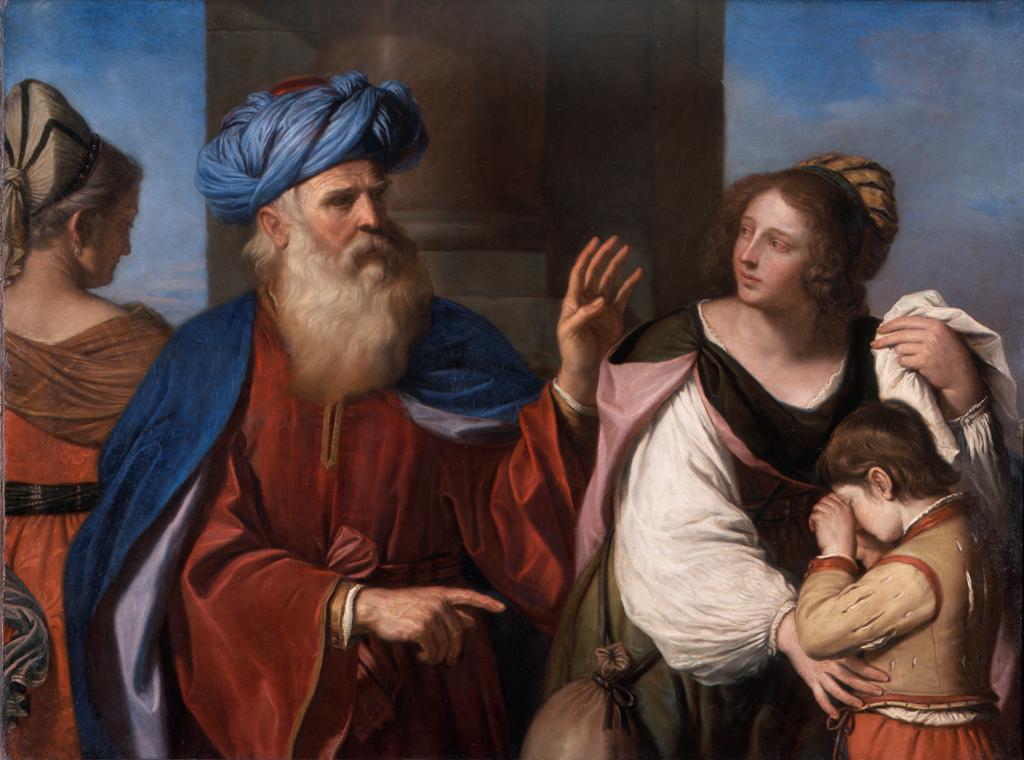"Among many things at Milan, one pleased me particularly, viz., the correspondence in the prettiest love letters in the world) of Lucretia Borgia with Cardinal Bembbo... and a lock of her haif, and some Spanish verses of hers, - the lock very fair and beautiful. I took one single hair of it as a relic, and wished sorely to get a copy of one or two of the letters; but it is prohibited: that I don't mind; but it was impracticable; and so I only got some of them by heart."
November 8th 1816/Lord Byron letter to Thomas Moore
Sunday morning and the Pinoteca Ambrosiana is almost empty. Could the lock of hair still be here in a manuscript? But the library is closed. My Blue Guide (1950) says there is also a Virgil palimpest 'with marginal notes by the hand of Petrarch'.
Instead - in an empty mansion - creaking wood floors and glimpses of sunlight outside - the facial expressions of those looking at suffering, or the new-born, fill the space. Botticelli's Madonna del Padiglione with its wonderful tented pavilion .... (an asset to any garden - am thinking of my own....)
And Titian's Adoration of the Magi with its wonderful horses.
The gaze and the thinnest gauze of Ambrogio Bergognone's Madonna del Velo....
Back to yesterday's theme of circles. (Perhaps life inevitably involves circles or cycles). Downstairs in a dimly lit library smelling of old paper is the Codex Atlantico - pages and pages of Leonardo's geometrical drawings. The lack of light seems to stop understanding - why this fascination? Then I tried. So you can square a circle.
Raphael's sketch for the Vatican (The School of Athens) is astonishing - armchairs in front of it - too vast to absorb. A Sunday could be spent looking at this.
Bright sunshine outside. After such genius - lunch seems to effervesce and the scores cut in the lemon rind seem an act of grace almost. Such a generous attention to detail.
The trees lining the street to the Brera are black, and look dead. Their roots are close to the surface, veining the asphalt of the pavements. Could they break through?
Mantegna's The Dead Christ has been rehung and relit by a fllm director. Almost missed it.
Veins, and foreshortening.
As in Bellini's Pieta. Such suffering.
Later mimosa and purple orchids in a cafe sparkling as the day outside.





































